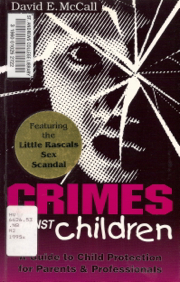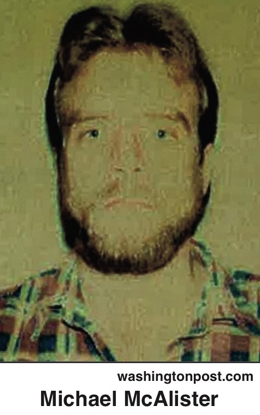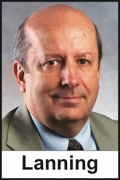Rascals case in brief
In the beginning, in 1989, more than 90 children at the Little Rascals Day Care Center in Edenton, North Carolina, accused a total of 20 adults with 429 instances of sexual abuse over a three-year period. It may have all begun with one parent’s complaint about punishment given her child.
Among the alleged perpetrators: the sheriff and mayor. But prosecutors would charge only Robin Byrum, Darlene Harris, Elizabeth “Betsy” Kelly, Robert “Bob” Kelly, Willard Scott Privott, Shelley Stone and Dawn Wilson – the Edenton 7.
Along with sodomy and beatings, allegations included a baby killed with a handgun, a child being hung upside down from a tree and being set on fire and countless other fantastic incidents involving spaceships, hot air balloons, pirate ships and trained sharks.
By the time prosecutors dropped the last charges in 1997, Little Rascals had become North Carolina’s longest and most costly criminal trial. Prosecutors kept defendants jailed in hopes at least one would turn against their supposed co-conspirators. Remarkably, none did. Another shameful record: Five defendants had to wait longer to face their accusers in court than anyone else in North Carolina history.
Between 1991 and 1997, Ofra Bikel produced three extraordinary episodes on the Little Rascals case for the PBS series “Frontline.” Although “Innocence Lost” did not deter prosecutors, it exposed their tactics and fostered nationwide skepticism and dismay.
With each passing year, the absurdity of the Little Rascals charges has become more obvious. But no admission of error has ever come from prosecutors, police, interviewers or parents. This site is devoted to the issues raised by this case.
On Facebook
Click for earlier Facebook posts archived on this site
Click to go to
Today’s random selection from the Little Rascals Day Care archives….
Click for earlier Facebook posts archived on this site
Click to go to
Today’s random selection from the Little Rascals Day Care archives….
UNC experts failed to bring rationality to case
March 4, 2013
“What did Mark Everson, Dr. (Jean C.) Smith, Dr. (Desmond K.) Runyan, Dr. (Doren D.) Fredrickson… all say about behaviors of children who are sexually abused?”
– From Nancy Lamb’s closing argument in the trial of Bob Kelly (March 23, 1992)
Although Lamb was understandably pleased with her parade of expert witnesses, their testimony brought only discredit to themselves, to their professions and to the University of North Carolina at Chapel Hill, especially its School of Medicine.
The prosecution called on psychologist Mark “Where there’s smoke….” Everson to explain away the child-witnesses’ wild inconsistencies and on pediatricians Smith, Runyan and Fredrickson to serve as “educators of the jury” about the case’s dubious physical evidence. (As detailed in this article in the Journal of Child Sexual Abuse, the pediatricians overreached but at least testified with less enthusiasm and more caution than Everson.)
One Chapel Hill faculty member, however, wasn’t fooled by the funhouse mirrors. I’ll be writing about sociologist Anthony Oberschall in Wednesday’s post.
Investigator still believes Kelly was guilty
 May 13, 2013
May 13, 2013
“On January 20, (1989, Audrey) Stever met with (social workers) David McCall and Grenda Costin, who told Ms. Stever that there was going to be an investigation into the day care. They also suggested to Ms. Stever that they put Kyle in therapy (and) that ‘they thought something was going on’ at the day care.
“On January 21, (Brenda) Toppin, Ms. Costin and Mr. McCall came to interview Kyle at his home. Ms. Stever prepared Kyle by telling him that he needed to be a ‘police helper’ to help figure out why the children at the day care were sad.”
– From brief for Bob Kelly before N.C. Court of Appeals (1994)
“As an initial social services investigator in the Robert Kelly case, I believe justice was served with this verdict…. A Salem-style witch-hunt did not occur, and a perpetrator of crimes against children was justly convicted. A significant battle in the war against child sexual abuse was fought and won in Edenton….”
–From “Crimes Against Children: A Guide to Child Protection for Parents and Professionals featuring the Little Rascals Day Care Sex Scandal” by David E. McCall (1995)
I asked McCall if he still believes justice was served in Little Rascals. “I stand on my original substantiation of abuse by Robert Kelly,” he said. “I was not involved in the investigation of the others charged.”
He said he went into the case with “significant training” in investigating abuse, adding that “If you ever want a child interviewed to find the truth, I really feel like I’m pretty good at that.”
McCall later left social work and now sells real estate in Edenton.
Lack of DNA evidence opens way for injustice
 April 18, 2015
April 18, 2015
“DNA testing has been used 329 times now to prove the innocence of people wrongly convicted of a crime. But what happens when there is no DNA evidence to prove someone’s innocence? What happens when there is only his word, and the mounded doubts of the team that prosecuted and convicted him? And what happens when – despite growing certainty that it has imprisoned the wrong man for more than 20 years – the Commonwealth of Virginia stands poised to keep him locked up, possibly forever?
“Of all the maddening stories of wrongful convictions, Michael McAlister’s may be one of the worst. For starters, he has been in prison for 29 years for an attempted rape he almost certainly did not commit….”
– From “This Man Deserves a Pardon” by Dahlia Lithwick at Slate (April 13)
Michael McAlister’s story surely qualifies as “one of the worst,” but forgive me if I think Junior Chandler – coincidentally now serving his 29th year of imprisonment – has suffered every bit as much injustice. And in McAlister’s case at least a crime was actually committed, just not by him.
‘With fewer accounts of human sacrifice….’
 Oct. 29, 2012
Oct. 29, 2012
“For at least eight years American law enforcement has been aggressively investigating the allegations of victims of ritualistic abuse. There is little or no evidence for the portion of their allegations that deals with large-scale baby breeding, human sacrifice and organized satanic conspiracies.”
– Kenneth V. Lanning, supervisory special agent at the behavioral science unit, National Center for the Analysis of Violent Crime, FBI Academy, Quantico, Va. (Aug. 19, 1991)
Two decades later, what’s most striking about agent Lanning’s statement isn’t the content – what could’ve been more predictable? – but the context: The moral panic held such sway that the FBI was forced to devote no less than eight years to discrediting it.
Lanning’s 1992 analysis (i.e., debunking) of all aspects of satanic ritual abuse has been called “perhaps the most important and influential document ever written on the topic.”
Here’s what Lanning said about day care allegations:
“Children currently or formerly attending a day care center gradually describe their victimization at the center and at other locations to which they were taken by the day care staff. The cases include multiple victims and offenders, fear, and bizarre or ritualistic activity, with a particularly high number of female offenders. Descriptions of strange games, insertion of foreign objects, killing of animals, photographing of activities, and wearing of costumes are common. The accounts of the young children, however, do not seem to be quite as ‘bizarre‘ as those of the adult survivors, with fewer accounts of human sacrifice….”
Angered by the report, some therapists accused Lanning of being a satanist who had infiltrated the FBI to advance the cause.











0 CommentsComment on Facebook